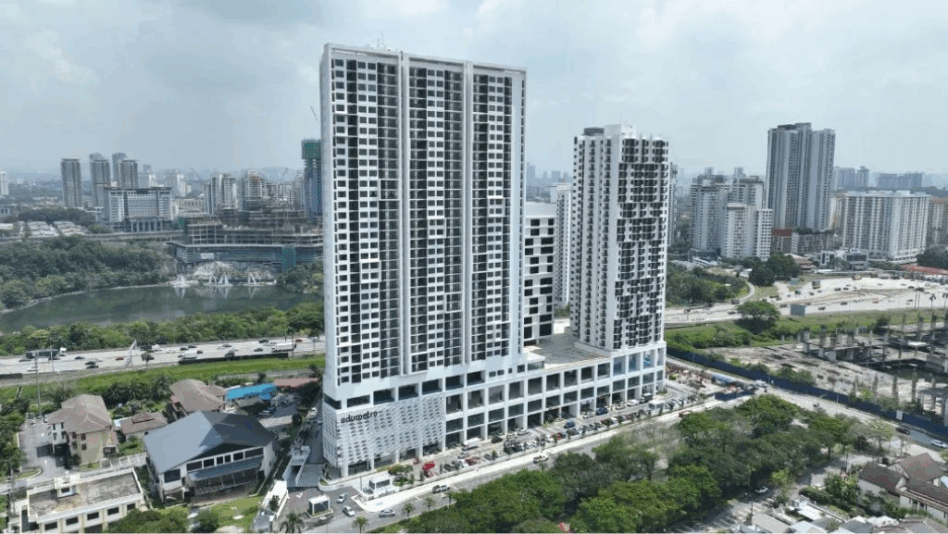By Xavier Kong
THE latest privatisation exercise of TA Global Bhd by Datuk Tony Tiah Thee Kian marks his second attempt to take one of his listed companies private. Will minority shareholders bite this time following the failed privatisation attempt of Tiah’s flagship company TA Enterprise in 2018? Tiah had then offered 66 sen each under a takeover offer of TA Enterprise but minority shareholders rejected it.
On Feb 12, TA Enterprise said it was making a conditional voluntary offer to buy out 2.12 billion shares or a 39.83% stake in TA Global that it does not own for 28 sen each.
Under the offer, TA Global shareholders can opt to take cash at 28 sen each or a share swap based on the exchange ratio of 0.4211 new shares in TA Enterprise to be issued at 66.5 sen each for every TA Global share surrendered.
It should be pointed out that the shareholding of TA Global is such that, of the 39.83%, the Tiah family owns over 15%, with 10.13% held by Tiah himself, and 5% by his son Tiah Joo Kim. This does not take into account the mix of shares held by other members of the Tiah family.
This means that the amount of shares owned by the general public, inclusive of institutions, comes down to about 23%, and this leads to a degree of concern that this is a rather unfair deal for minority shareholders.
William Ng, chief investment/research officer at Leinves Plt, tells FocusM that the deal is unfair to shareholders, stating that a share swap or the cash consideration cannot be considered good deals, either from the angle of TA Global’s net tangible assets or from the company’s revised net asset value (RNAV).
“This is an offer that looks good from a market price perspective, but is extremely bad in real value,” says Ng, adding that he would reject the offer.
Minority Shareholders Watch Group (MSWG) CEO Devanesan Evanson concurs. “TA Enterprise was doing about 60 sen per share at last check. The share swap is at a ratio of 0.4211 shares in TA Enterprise to be issued at 66.5 sen each for every TA Global share surrendered.
“Based on these numbers, the cash deal for TA Global seems more attractive. But the point here is not about which is the preferred option – it is about both options being unfair to disinterested shareholders,” Evanson tells FocusM.
He notes that the offer price of 28 sen is a 74.57% discount to TA Global’s RNAV of RM1.10 per share which includes the revaluation surpluses.
“It must be remembered that investors invest in TA Global for the long term as they understand that the property sector is a cyclical industry. Even if we offer a fire-sale discount of 25% for the RNAV of RM1.10, the fire-sale value is 82.5 sen – well above the offer price of 28 sen by 194%,” adds Evanson.
An offer for TA Enterprise could be on the cards
Evanson and Ng agree that the voluntary takeover offer is a first step in Tiah’s plans to gain a larger stake in both TA Global and TA Enterprise, with an offer for TA Enterprise on the cards should the offer for TA Global be even partially successful.
“The first offer was for TA Enterprise, now this offer is for TA Global. If this succeeds or is even partly successful, then there will be a second offer for TA Enterprise. The offer price previously was 66 sen, and now there is an offer to exchange with the shares of TA Enterprise valued at 66.5 sen.
“Tiah plans to use this timing when the property market is not in a good condition as an excuse to privatise and increase his controlling stake,” says Ng.
According to Evanson, Tiah also has a direct interest of 41.92% in TA Enterprise.
“To finance the cash offer of 28 sen per share by TA Enterprise, Tiah will subscribe for up to 550.54 million shares in TA Enterprise at 66.5 sen per share. This will provide the cash flow for TA Enterprise to make the cash offer for TA Global.
“In turn, Tiah will gain more control over TA Enterprise after he subscribes for the shares in TA Enterprise by taking up the share exchange option, under the voluntary takeover offer, as a result of his 10.13% direct interest in TA Global,” says Evanson.
He also explains that the current offer for TA Global, and how TA Enterprise is being financed by Tiah through his subscription of shares in TA Enterprise for cash, may result in a mandatory general offer for TA Enterprise as a consequence of the TA Global offer and outcome.
“If the mandatory general offer is triggered at the TA Enterprise level, it would be at 66.5 sen; which would be the highest share price paid by Tiah under his financing scheme to TA Enterprise. Incidentally, the previous offer for TA Enterprise was in 2018 at 66 sen per share and this was rejected by shareholders,” says Evanson.
On the surface TA Enterprise minority shareholders would see benefits, as Ng notes that the company would see a lower gearing and better balance sheet.
Evanson points out that TA Global would be consolidated as a wholly-owned subsidiary of TA Enterprise, leading to TA Enterprise’s earnings per share increasing from 4.49 sen to 5.36 sen.
“TA Enterprise’s non-interested shareholders, who may not be TA Global’s non-interested shareholders, may view the privatisation of TA Global at 28 sen a share as a good deal to TA Enterprise and beneficial to them,” notes Evanson.
However, TA Enterprise shareholders would be affected as well, considering the fact that there will be dilution of their shares in TA Enterprise with the share issue of Tiah financing the TA Global offer.
This would mean that, after the completion of the proposed voluntary takeover offer and the subscription exercises, TA Enterprise’s net assets per share will decrease to RM1.17 under the “minimum scenario” from RM1.44 per share as of Dec 31, 2018, according to Evanson.
“The situation then is similar to the offer for TA Global, an offer of 28 sen for net assets of 60.3 sen per share, which is offering a price well below the net assets.
“So right now, we should focus on the imminent offer price of 28 sen for TA Global shares; which substantially undervalues TA Global,” he adds.
The rules and regulations are met, but to what end?
Still, the offers are all done above board, and follow the prevailing rules, codes and listing requirements. However, Evanson calls for regulators to consider adopting the practice in Singapore where offers must be both fair and reasonable before the offer can even be made.
According to the current regulations, an offer that is not fair but reasonable can come with advice to accept by the independent advisers, and is open for shareholder acceptance, though this would also lead to minority shareholders again getting the short end of the stick.
“MSWG fears that there will be a trend where property companies, which typically have low price-to-book values, will be privatised at very low offer prices on the premise that it is higher than the share price and thus offers an option for the shareholders to exit,” says Evanson, adding that the offer prices are grossly below the revised net asset value and, most of the time, also below the revised share price based on the independent adviser’s valuation.
He calls for the independent directors on the board to fulfil their fiduciary duty by asking shareholders to reject offers that are not fair to all shareholders, including the minority shareholders, who he notes are often vulnerable due to not having a sizeable stake of shares.
“Nevertheless, all is not lost for minority shareholders as they can always band together to defeat the privatisation deal,” adds Evanson. – Feb 27, 2020









